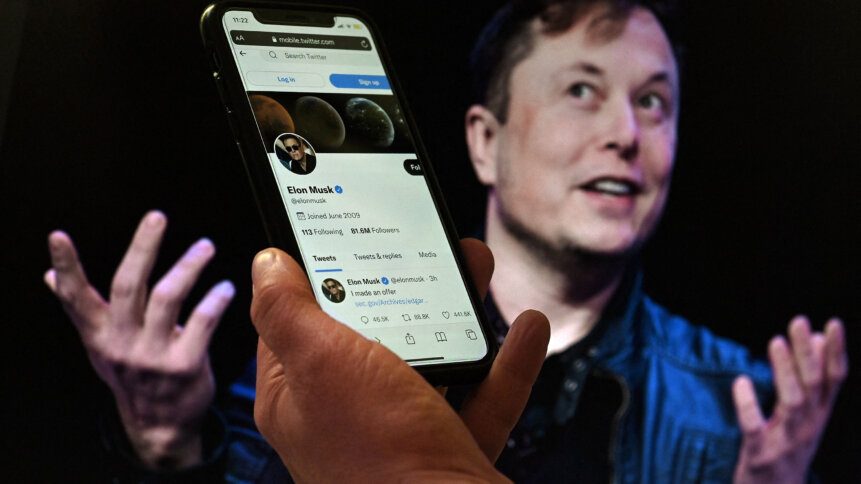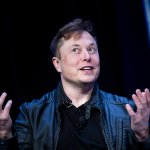Superapp: Musk’s everything app, ‘X’ – can it make it in the West?

- Silicon Valley has been toying with trying to build its own superapp, but efforts have fallen apart more often than not.
- Musk has in the past floated the idea of turning Twitter into the next “superapp,” on par with multi-faceted platforms popular in Asia, such as WeChat or Grab.
- To the Tesla CEO, Twitter is “an accelerant to fulfilling the original X.com vision.”
A week ago, Twitter, Elon Musk and the idea of the “superapp in the West” were trending once again. Musk announced that his offer to buy the social media network was back on the table after months of tussle between the two sides that would eventually lead them to court. Just three weeks shy of their court proceedings, Musk announced he’d like to move forward with the deal he first agreed to in April: to buy Twitter for US$44 billion.
A regulatory filing indicated that the entrepreneur only intended to close the deal at the previously agreed price of US$54.20 a share, once debt financing was received, provided the court halted the legal action and adjourned the upcoming trial and related proceedings. A Twitter spokesperson acknowledged the social media network had received the letter, and that the “intention of the company is to close the transaction at US$54.20 per share”.
Twitter, but make it superapp?
This time around, Musk’s Twitter enthusiasm came with ambitious plans; “Buying Twitter is an accelerant to creating X, the everything app,” he tweeted. Connecting to what he had said back in May on the All-In podcast, Musk believes that the US needs a superapp. “It’s either convert Twitter into that, or start something new. It does need to happen somehow,” he emphasized.
Musk floating the idea of turning Twitter into the next “superapp,” on par with multi-faceted platforms popular in Asia, such as WeChat or Grab, isn’t something new. “If you’re in China, you kind of live on WeChat,” Musk said. “It does everything. It’s sort of like Twitter, plus PayPal, plus a whole bunch of things all rolled into one, with a great interface. It’s really an excellent app, and we don’t have anything like that outside of China,” Musk said on the podcast.
For Musk, the superapp should serve as a “digital town square” that lets users leave comments and post videos. Once the platform had a high level of trust among the public, Musk said, “then payments, whether it’s crypto or fiat, can make a lot of sense.” Even during a town hall event with Twitter employees in June this year, Musk reiterated that idea.
He compared the superapp idea he has with that of WeChat — the world’s first and largest superapp, owned by Chinese giant Tencent Holdings. Musk explained that, in China, “you basically live on WeChat because it’s so usable and helpful to daily life.” To him, “if we can achieve that, or even get close to that at Twitter, it would be an immense success.”
He also suggested that Twitter’s user base could grow from just over 200 million to “at least a billion people,” CNN reported. Last week, on Twitter, Musk said that, “Twitter probably accelerates X by 3 to 5 years, but I could be wrong.” The next day, he remarked that Twitter was “an accelerant to fulfilling the original X.com vision.”
Can a superapp succeed in the West?
Truthfully, to come up with a US-based “superapp” in the West, especially in America, would be far from an easy task, considering the number of heavy hitters with similar ambitions. On a worldwide scale, the idea is not preposterous, as Parmy Olson puts it in a Bloomberg analysis piece. For context, more than a billion Chinese citizens use QR codes through Tencent Holdings Ltd’s WeChat to do all manner of tasks, from buying groceries to booking a dentist appointment, sharing photos with friends or playing video games.
YOU MIGHT LIKE

Are you already using a super-app?
They can access a government-issued ID card through WeChat too. Separately, in Southeast Asia, Singapore-based Grab, which counts SoftBank Group Corp. and Uber Technologies Inc. as its two biggest shareholders, has also been called a superapp, offering ride-hailing, food delivery and digital payments. In the US, mobile payments are not that big a deal compared to Asian countries.
Olson said that if Musk were truly determined, he could try and buy PayPal Holdings, closing a meaningful loop for himself after co-founding PayPal’s predecessor more than two decades ago. “It was named x.com. Twitter historically adds incremental features to its platform, so a comprehensive payments service would probably need to be bought and bolted on,” the article by Bloomberg reads.
But that brings us to the next question. Since Twitter’s co-founder Jack Dorsey was leading both Twitter and the payments giant Square, now called Block, why didn’t he merge the two and create a superapp when he could? Experts claim it was for the obvious reason — he knew then that a superapp could work in the West.
For one, many argued that the biggest risk to companies with superapps is the increasing scrutiny of the technology industry’s power. Then there are regulators, particularly in the European Union and USA, that are contemplating laws which would further restrict the sharing of user data between different companies. All of which argue against the likelihood of a superapp working in the West.
Above all, building one superapp to cater to all of the disparate needs of the Western economies will be an uphill battle — considering the lack of homogeneity compared to Asian nations. For now, we will have to wait and see if an ‘X’ app even materializes, considering how fickle-minded Musk can get.









